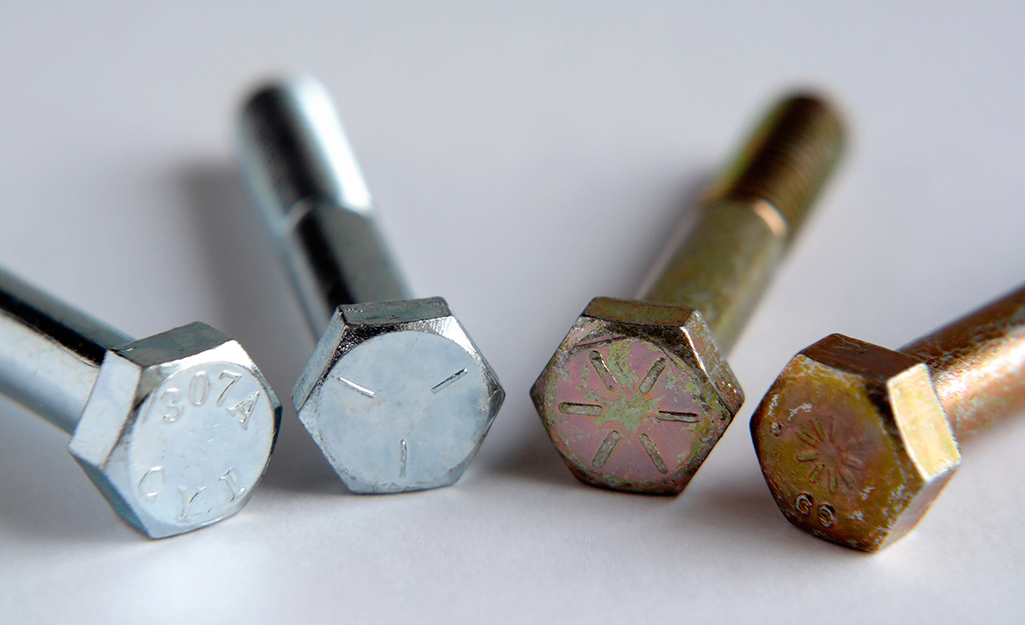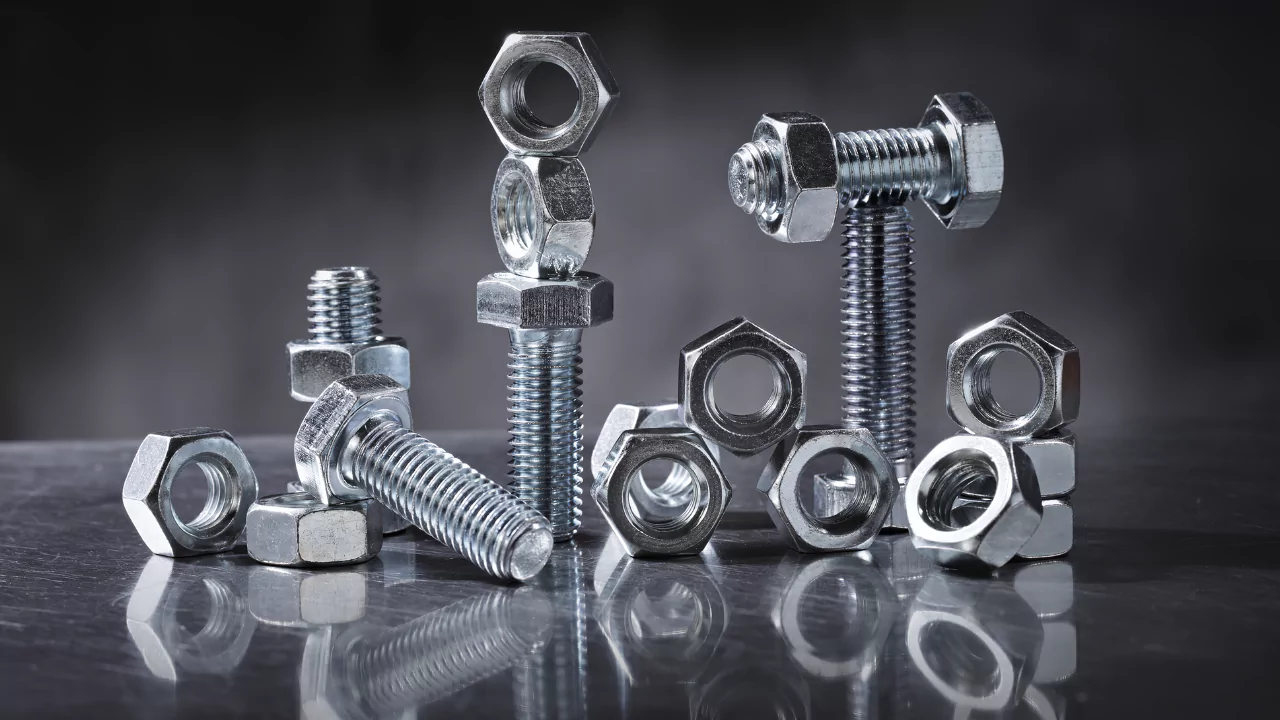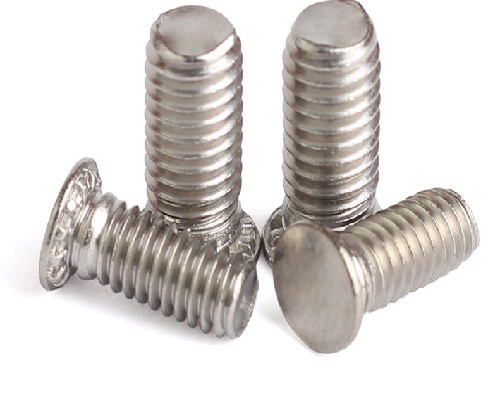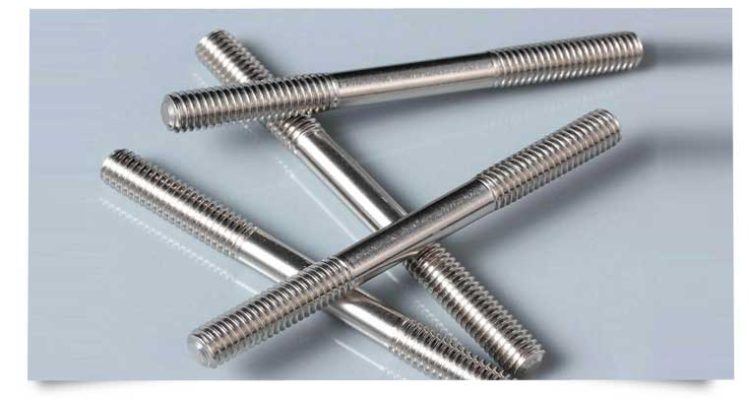
What is the strongest bolt type
The strongest bolt type is the Grade 9 bolt, with a tensile strength of 180,000 psi, 20% higher than Grade 8 bolts. Commonly used in heavy machinery and automotive applications, they handle extreme loads and last longer under stress, ensuring reliability in critical situations.
Grade 9 Bolts
Grade 9 bolts have the highest tensile strength, with a rating of 180,000 psi, among most. This is significantly stronger than Grade 8 bolts, which have a tensile strength of 150,000 psi, and substantially stronger than Grade 5 bolts, which typically top at 120,000 psi. That means a Grade 9 bolt, especially in heavy-duty applications where the bolt is supposed to bear extreme tension and stress, will resist 20% more force than its Grade 8 counterpart before reaching its breaking point.
Talking about the shear strength, Grade 9 bolts resist up to 67,000 psi, which again is higher compared with Grade 8 bolts that normally provide a mere 57,000 psi. The characteristic mentioned above makes Grade 9 especially helpful in applications where the bolt will see both pulling and lateral forces. Such is the case when Grade 9 bolts are in use in high-performance automotive applications, such as on the suspension of a heavy-duty truck; their increased capacity ensures that components stay tight when driving conditions become extreme off-roading, and the bolts are expected to bear heavy loads with additional serious vibrations.
The upfront cost of Grade 9 bolts is a bit more expensive compared to lower grades, but they pay back in major savings on long-term maintenance. A typical 1/2-inch Grade 9 bolt could be in the region of $3.00, whereas a Grade 8 comparable-sized bolt would be around $1.50. However, it will last longer under stress because of its greater content of material composition, hence not needing to be replaced as often.

Grade 8 Bolts
On all industrial and automotive applications, Grade 8 bolts are widely used because of the high tensile strength at 150,000 psi. Grade 8 bolts are 25% stronger than the more common Grade 5 bolts, which have a tensile strength of 120,000 psi. To put that in perspective, in a giant industrial machine, a 5/8-inch Grade 8 bolt can resist as much as 17,000 pounds of tension before it breaks, whereas a similarly-sized Grade 5 bolt will only manage 13,500 pounds.
In addition to tensile strengths, Grade 8 bolts also have very impressive shear strengths and are capable of resisting up to 90,000 psi in shear force, thus making them appropriate in those cases where bolts experience sideways or lateral forces. For instance, during the fixation of a heavy truck suspension system, Grade 8 bolts are capable of supporting up to 30% more shear force than Grade 5 bolts. This keeps things stable under tough driving conditions. A three-quarter-inch Grade 8 bolt used in suspension can bear up to 18,000 pounds of lateral load, hence allowing further durability in those environments where the equipment is exposed to high vibrational stress.
As far as price goes, Grade 8 bolts can be considered middle-of-the-range bolts between higher-strength Grade 9 bolts and lower-grade bolts such as Grade 5. A typical average cost for a 1/2-inch Grade 8 bolt would be in the area of $1.50, which is significantly less than the $3 Grade 9 bolt but far superior in performance compared with an $0.80 Grade 5 bolt. This balance of cost and performance in Grade 8 bolts makes them the most desirable option in those businesses that need strength without necessarily having to overspend.
Grade 8 bolts serve in the assembly of big hydraulic presses where the repeated cycling of such machinery results in a high load over time being placed on the bolts. It follows that Grade 8 bolts withstand up to 100,000 load cycles before fatigue sets in, while the Grade 5 bolts can only sustain about 60,000 cycles.

A325 Bolts
A325 bolts are a special kind of bolt manufactured to ASTM standards for use on structural steel connections. These types of bolts achieve a tensile strength of 120,000 psi and therefore become quite useful in applications that are burdened by high stress, such as bridges and buildings. But even if they are less powerful compared to Grade 8 or Grade 9 bolts, A325 bolts are so specifically adapted to the type of loads found in structural connections. A 1-inch diameter A325 bolt is able to support up to 40,000 pounds of force safely if used to construct the steel frame of a high-rise building, thus providing a very stable and secure connection between structural members.
In terms of shear strength, A325 bolts are rated at approximately 90,000 psi, force levels acceptable for a great many structural applications that are burdened with large shear forces. In the building of a steel bridge, A325 bolts can often be found to fasten I-beams together where such bolts must resist horizontal forces caused by traffic loads and other environmental causes such as wind. A 3/4-inch A325 bolt applied in such a purpose will be able to resist up to 15,000 pounds of shear force and provide the required strength to hold the structure together during dynamic conditions.
It is common to find a 1/2-inch A325 bolt for about one dollar, but the higher graded bolts like Grade 8 may go for as high as 1.5 or 2 dollars for the same size. This cost difference really adds up when one is outfitting a steel structure that calls for thousands of bolts. It could mean that if a job requires 10,000 bolts, the A325 bolt could save $5,000 to $10,000 without sacrificing the structural requirements of that job.
The A325 bolts are constructed with heavy-duty environmental exposures in mind, typical of large-sized construction projects. The corrosion resistance of A325 bolts is usually achieved by hot-dip galvanization, enabling them to resist rain and wind for a long time. With proper treatment and maintenance, A325 bolts may serve for 20 to 50 years in such conditions, hence being reliable in long-term service in critical infrastructural projects.
Titanium Bolts
With a perfect strength-to-weight ratio, titanium bolts have a tensile strength of 138,000 psi and are about 45% lighter than steel. Applications involving aerospace industries, for example, could be in securing major parts of aircraft because each pound saved can translate to as high as $1,000 in fuel economy throughout the life of the plane. Indeed, a 60-gram, 1/2-inch titanium bolt can resist as much as 12,000 pounds, purely outshining other bolts made of more dense materials like stainless steel.
The added strength of the titanium bolts comes through excellent resistance to corrosion in highly hostile environments, such as those with marine applications or within chemical processing plants. A passive oxide layer protects the titanium from saltwater corrosion and other harsh chemicals. A titanium bolt utilized in an offshore oil rig can be functional with no signs of corrosion for 30 years, while the stainless steel bolt might need to be changed in 10 years under similar conditions. Savings accrued from reduced maintenance and longer replacement cycles in industries that heavily rely on corrosion-resistant materials run into hundreds of thousands of dollars.
Contrasting the high-performance characteristics, titanium bolts are far more expensive than their traditional steel or stainless steel brothers. A 1/2-inch diameter bolt may range into the $10-$12 price range compared to a similar-size Grade 8 steel bolt at roughly $1.50. In car racing, the engine mounts and suspension systems have titanium bolts because there is a competitive edge in that kind of weight savings and durability from the material.
The fatigue strength of the titanium bolts is excellent; they can resist the constant cycles of loading and unloading without material failure. In high-performance bicycle applications, the components are constantly at stress between pedaling and impact; a titanium bolt will take millions of load cycles without failing. For suspension on a mountain bike, it has been known that an M6 titanium bolt will withstand in excess of 500,000 cycles in normal riding conditions; a similar aluminum bolt may yield after only 200,000 cycles.



